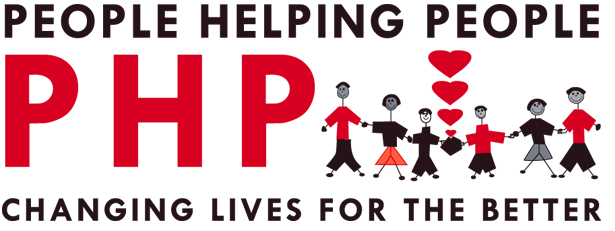During the third week of September, the U.S. will celebrate National Wellness Week. Wow, I know what you are thinking: This is another fake celebration like “National Beer Can Chicken Day” paid for by the beer and chicken lobby. Nope, you are wrong this time. This celebratory week is designed to get us each to think about our own wellness and that of each of our family members. Wellness has a number of dimensions that include the more traditional thinking about the subject including medical, dental, and emotional or mental health but also includes physical capability and nutrition, financial well-being, intellectual stimulation, sound and safe environment, and social connectedness.
Ok, so now you are thinking: so what does this wellness nonsense have to do with People Helping People (PHP)? At PHP, when we work with individuals and families that need some assistance, we have learned to take a holistic approach. When your objective is to furnish a hand-up leading to self-sufficiency there is generally more than one barrier to overcome. Many clients, especially children, living in poverty have unaddressed trauma related to childhood lack of consistent food supply or poor nutrition; substandard living conditions or repeated episodes of homelessness; and exposure to child abuse, adult use of drugs or alcohol, and domestic violence. Research has shown that these traumas are linked lead to long-term emotional distress and mental illness; poor health outcomes such as hypertension, obesity, heart disease and diabetes; inability to connect with others; and poor school performance.
Family Service Advocates at PHP are trained to look beyond the specific need presented by a client to the underlying causal factors. Children’s needs are often directly related to the home environment created by the adults in their lives and must be addressed in order to build a stable environment. Services often include provision of basic needs such as food, secure housing, health care, transportation, and elimination of family violence. In the longer term, PHP offers counseling for adults and children, mentoring and after school programs, drug and alcohol prevention training, parent education, and advocacy for clients with schools and government agencies. All of this is designed to improve the overall “wellness” of individuals and families resulting in their higher quality of life. The collective impact of each of these small individual and family changes leads to the fulfillment of PHP’s mission to contribute to improving the health of our community.
Article by PHP’s CEO, Dean Palius.
